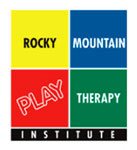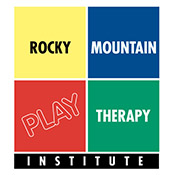Webinar
Integrative Play Therapy: Creating a pathway for working as an integrative play therapist

Overview
This webinar addresses fundamental questions practitioners have concerning an integrative approach to Play Therapy. It is designed for the beginning play therapist, as well as the seasoned play therapist and play therapy supervisor. The webinar covers both theoretical issues, such as pathways toward integrating multiple models or theories, as well as implications for decision-making, monitoring therapist use of self, and supervision from an integrative perspective. Both the play therapy supervisee and supervisor will benefit from this material, as it provides a foundation for understanding and monitoring the therapeutic process
Watch this brief introduction
The webinar is divided into two parts. There is a menu to navigate between different chapters and/or return to specific sections for additional review.
Outline
Part I
 Kimberly Bartlett, MSW, LCSW, RPT-S; Licensed Clinical Social Worker and Registered Play Therapist Supervisor; Owner at Caring Hearts Play Therapy.
Kimberly Bartlett, MSW, LCSW, RPT-S; Licensed Clinical Social Worker and Registered Play Therapist Supervisor; Owner at Caring Hearts Play Therapy.
In the first section Kimberly Bartlett provides an introduction to approaches to integrative work, examining what it means to integrate multiple theories, as well as exploring different frameworks or pathways for integration. Additionally, Kimberly emphasizes the issue of being “client driven” by conceptualizing the needs, characteristics and context of the child client. Finally, competencies and attributes of the Integrative Play Therapist are highlighted.
Chapters:
- Introduction to Integrating Multiple Theories
- Client Driven
- Pathways of Integration and a Framework
- The Integrative Play Therapist
- Competencies of Integrative Play Therapy
Part II
 Lorri Yasenik, Ph.D., RSW, RFM, RPT-S, CPT-S
Lorri Yasenik, Ph.D., RSW, RFM, RPT-S, CPT-S
Ken Gardner, M.Sc., R.Psych. CPT-S
Co-Directors, Rocky Mountain Play Therapy Institute
In Part II, Lorri Yasenik and Ken Gardner provide an overview of the Play Therapy Dimensions Model, which is a decision-making model for the integrative play therapist. The model is examined in detail, looking at the two primary dimensions, consciousness and directiveness. Video segments illustrate movement along the two continuums, highlighting underlying case conceptualization processes, as well as tools used to guide clinical decision-making. Two cases are presented to increase our understanding of an integrative framework for decision-making, as well as how to make use of the tracking and self-monitoring tools in supervision.
Chapters:
- Introduction the Play Therapy Dimensions Model (PTDM)
- Case example Ellis – Illustration of the 4 quadrants and an integrative approach to decision making
- Case example Carlos – Use of the Child & Therapist Moderating Factors Scale and the Degree of Immersion: Therapist Use of Self Scale
- Case example Jack – Tracking client movement; case conceptualization
- Summary – Overview of the two primary dimensions and summary of an integrative decision-making approach
Mastery Test
At the end of the webinar, you will find a Mastery Test. Successful completion (80 %) is required to obtain 3 non-contact hours of continuing education credits.
The test has 24 multiple choice test questions. The test is to be submitted via the link provided. Your mark will be provided within 5 working days. A printable Certificate will then be issued indicating 3 continuing education (non-contact credit) hours.
The Certificate cannot be used for CAPT purposes for Foundation Child/Play Therapy requirements towards certification as a Certified Play Therapist (CPT).
APT and CAPT alone hold the right to accept or deny any continuing education training at their discretion
Note: Once registered, you will have 30-days to submit the Mastery Test. If necessary, a second submission is permitted to reach Mastery Level and obtain the Certificate.
REGISTRATION
Pay by credit card via PayPal (you do not have to be a member of PayPal). You will be sent an email with registration information on completion of payment.
$85 CAD plus GST
Alternately, Canadian applicants can send an e-transfer to our office email ($85.00 CAD plus GST = $89.25)
Please note in the comments section that it is for the webinar.
Note – whatever email you use in either transaction will be the one associated with your webinar registration. Once you receive your log-in information you will have 30 days to complete the program.
